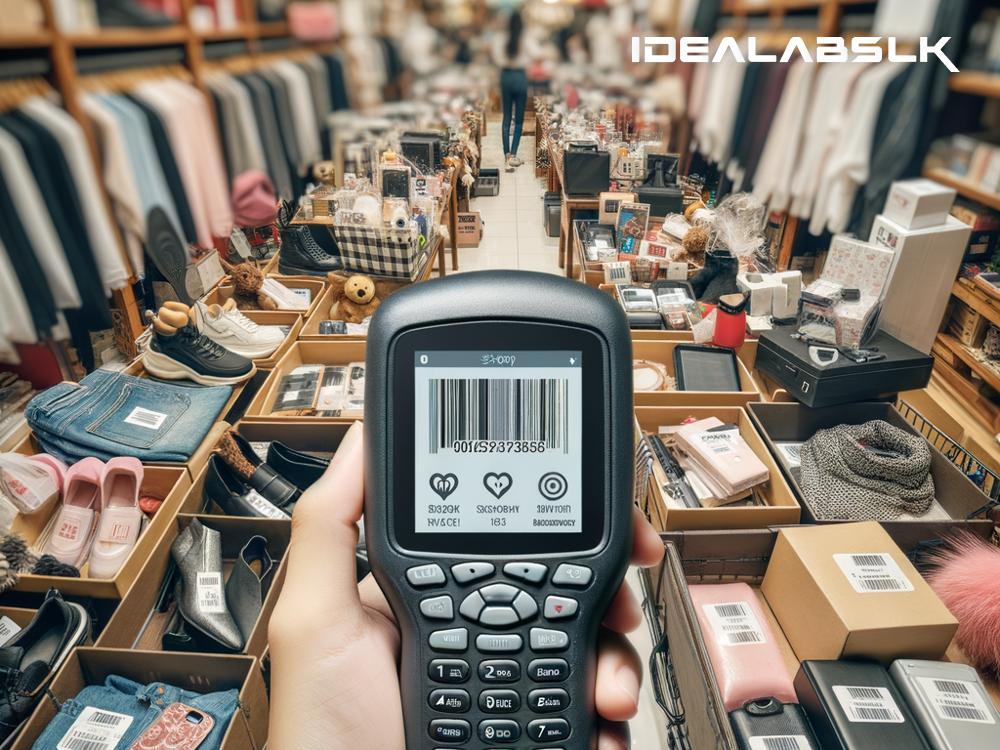Unlocking the Power of RFID Hardware in Retail: A Simple Guide
In the vibrant world of retail, staying ahead of the curve is not just a goal—it's a necessity. In recent years, one technology has been making waves, transforming how businesses operate and engage with their customers: RFID, or Radio-Frequency Identification. This simple yet powerful technology is revolutionizing retail operations, from inventory management to enhancing the customer shopping experience. Let's dive into the world of RFID hardware in retail and uncover its remarkable benefits.
What is RFID?
Imagine tagging items in a store with special stickers that can talk to a computer wirelessly. That's the magic of RFID. Each sticker, or "tag," contains a tiny chip and antenna. When these tags come near a special reader, they can communicate information like an item's identity, location, and even its history. It's like every product getting its unique digital fingerprint.
The Mechanics Behind RFID in Retail
The mechanics of RFID in retail are straightforward yet ingenious. Tags attached to items store data that RFID readers can scan through radio waves. There are two main types of tags: passive, which don’t have their power source and activate only near a reader, and active, which have their battery and can send signals actively. Most retail settings use passive tags due to their cost-effectiveness and simplicity.
Inventory Management Made Easy
One of the most groundbreaking uses of RFID in retail is in inventory management. Before RFID, workers had to manually count items or scan barcodes one by one—a time-consuming and error-prone process. With RFID, entire shelves of products can be scanned in seconds, with near-perfect accuracy. This not only saves valuable time but also provides real-time data on stock levels, significantly reducing the risk of overstocking or stockouts.
Enhancing the Shopping Experience
RFID is also revolutionizing the customer shopping experience. Imagine walking into a store and, with the help of an app, immediately knowing where your desired items are located. Or even better, dressing rooms equipped with RFID readers can recognize the items you bring in, offering suggestions on sizes, colors, and complementary products. This level of personalization and efficiency is made possible thanks to RFID technology.
Speedy and Secure Checkout
One of the most appreciated applications of RFID in retail is the potential to streamline the checkout process. Traditional checkout requires scanning each item's barcode, one by one. However, RFID-equipped stores can process entire shopping carts instantly. Additionally, RFID tags add an extra layer of security against theft, as they can trigger alarms when unpaid items pass through the exit scanners.
Sustainability and RFID
Beyond the obvious benefits, RFID also opens doors to more sustainable retail practices. By precisely managing inventory, retailers can significantly reduce waste associated with overproduction and unsold goods. Moreover, RFID tags are becoming more environmentally friendly, with recyclable and biodegradable options emerging, minimizing the ecological footprint of retail operations.
Challenges and Considerations
While RFID technology heralds a new era in retail, it's not without its challenges. The initial setup, including hardware and system integration, can be costly. Moreover, privacy concerns regarding tracking and data collection must be addressed thoughtfully to garner consumer trust. However, with the retail landscape becoming increasingly competitive, the long-term benefits and efficiencies brought by RFID can far outweigh these initial hurdles.
The Future is RFID
Looking ahead, RFID technology is set to become a cornerstone of the retail industry. Innovations like smart shelves that automatically reorder products when stocks are low, and integration with the Internet of Things (IoT), promise an even more seamless, efficient, and customer-friendly retail environment. As RFID tags become even smaller, cheaper, and more versatile, their adoption across various products and sectors is likely to accelerate.
Wrapping Up
RFID technology in retail is not just about keeping up with trends—it's about setting a new standard in operational efficiency, customer satisfaction, and sustainability. From revolutionizing inventory management to enhancing the shopping experience, the uses of RFID hardware in retail are profound and far-reaching. As we step into the future, it's clear that RFID will play a pivotal role in shaping the retail landscape, marking a new era of innovation and growth.
By embracing RFID, retailers are not just investing in a technology; they're investing in a smarter, more connected, and more sustainable future. The journey of RFID in retail is just beginning, and its full potential is only just starting to unfold.

